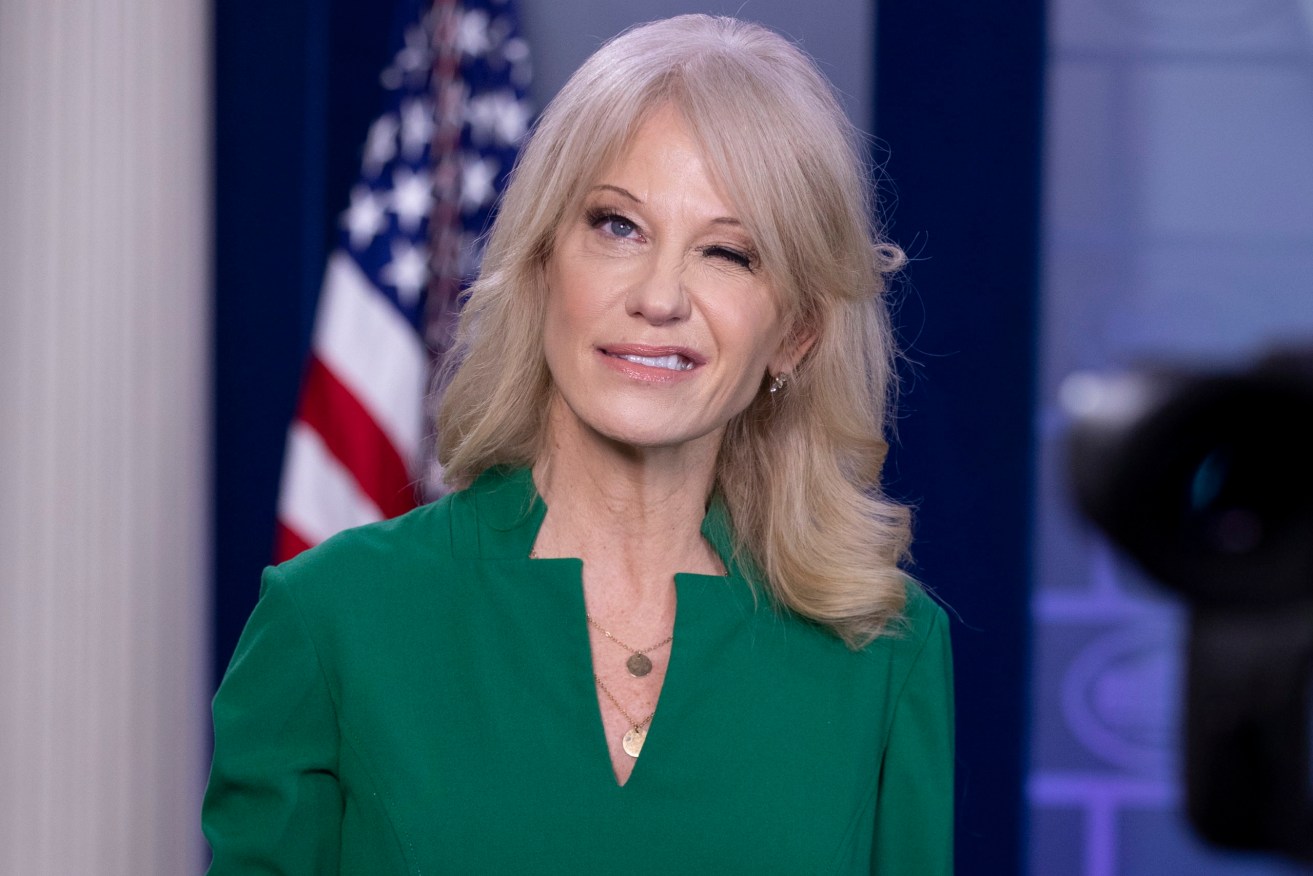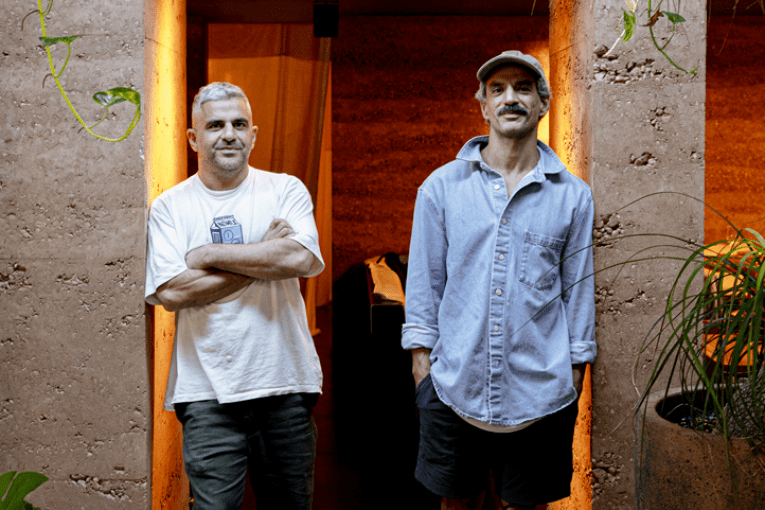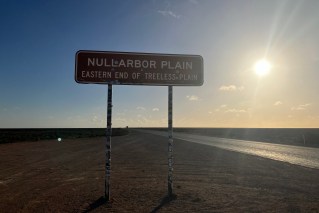Facts no longer have to be factual, but they’re still better than the alternative
“Alternative facts” has been voted the worst phrase of the decade by the Plain English Foundation.

epa08621456 (FILE) - Counselor to the president Kellyanne Conway reacts to questions from members of the news media following a television interview in the James Brady Press Briefing Room of the White House, in Washington, DC, USA, 17 December 2019 (reissued 24 August 2020). Kellyanne Conway has announced that she will leave the White House at the end of August 2020. EPA/MICHAEL REYNOLDS
The phrase was coined by White House staffer Kellyanne Conway to defend press secretary Sean Spicer’s blatant lies about the attendance numbers at Donald Trump’s presidential inauguration in 2017.
Plain English executive director Neil James said the much lampooned phrase stood out in a post-truth period when global politics took an Orwellian turn.
“This outrageous take on dishonesty was our clear winner in a decade that saw democracy decline,” Dr James said in a statement on Tuesday.
“Politicians are known for obfuscation, but ‘alternative facts’ was particularly worrying.
“It suggests our elected leaders can be right even when they are factually wrong. That sets a dangerous precedent for democracy.”
Since 2010, the Plain English Foundation has curated an annual list of the worst words and phrases to highlight the importance of clear language.
Previous winners over the decade include corporations indulging in doublespeak.
Orica referred to chemical leaks as ‘”fugitive emissions” while Volkswagen hid behind ‘possible emissions non-compliance’ when it cheated on environmental tests.
The notable corporate trend of the decade was the way corporations spoke about job cuts when they had to fire staff.
In 2018, the ABC won the annual gong for using ‘external career development opportunities’ to discuss firing staff.
The decade also spawned an impressive collection of Frankenwords, as brands vied to attract consumer attention.
KFC’s Goodification was an early winner, and honourable mentions went to Sportsbet for Merry Puntmas and Tourism Australia for its recent philausophy.
“At best, these non-words are ugly and hard to make sense of,” James said.
“At worst, they imply junk food is healthy and gambling is as special as a religious and family holiday.”
Celebrity speak and popular culture didn’t disappoint either.
‘Conscious uncoupling’ was the 2014 winner when Gwyneth Paltrow used the phrase to describe her separation from husband Chris Martin.
The lists often rounded out with a mixed metaphor and non-apology, which captured some of the most mealy mouthed manglish of the decade.
The foundation also released its 2020 list of worst words and phrases, with COVID-19 generating many new words.
The year’s worst winner – ‘vertical consumption’ – was a roundabout way of saying you can drink while standing.
WORST WORDS AND PHRASES OF 2020
VERTICAL CONSUMPTION
* When South Australia announced it would allow people to drink in bars while standing up, the SA government described it as “vertical consumption”.
DISCRETIONARY ESSENTIALS
* This oxymoron of the year emerged from the retail sector and refers to spending on “discretionary essentials” for home renovations and office supplies.
ZUMPING
* Dumping a romantic partner on Zoom.
SHE-SESSION
* This word was invented by someone to describe how the COVID-19 recession is disproportionately impacting women.
HIPSTURBIA
* A real estate sector-driven word that describes suburbs that attract “hip” residents.
A MAGNETIC AND EUPHONIC BUILDING
* The real estate sector also generated the mixed metaphor of the year: “A magnetic building both lyrical and euphonic, driven by pizzazz and charm”.
WITHDRAWN AS A MATTER OF PRIORITY
* Need to stop a wild animal from harassing people? Make sure it is “withdrawn as a matter of priority”. That means kill it.
SENSITIVE RECEIVERS
* A tunnel construction project described how its noise abatement was “designed to minimise noise and vibration impacts on sensitive receivers” – that is, homes, schools and hospitals.
REVERSE PORK BARELLING
* Former federal minister Bridget McKenzie defended her decision to allocate sports grant money to projects in marginal seats as “reverse pork-barrelling”. She also reversed her cabinet spot.
EFFORTING OUTREACH
* White House press secretary Kayleigh McEnany explained President Trump was trying to contact the family of a police shooting victim by saying: “We are efforting outreach”.
HEALTH DICTATORSHIPS
* Former Australian PM Tony Abbott railed against so-called COVID-19 “health dictatorships” when Victoria imposed restrictions while battling a second wave outbreak.
APOLOGISED FOR THE DISTRESS THE EVENT CAUSED
* A Rio Tinto executive was recorded commenting on the destruction of two 46,000-year-old landmarks in the Juukan Gorge, saying: “We haven’t apologised for the event itself, per se, but apologised for the distress the event caused”.
SOURCE: Annual list of the worst words and phrases, compiled by Australia’s Plain English Foundation.












